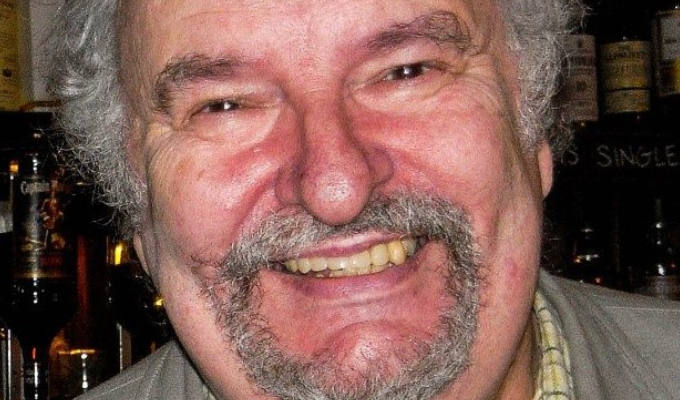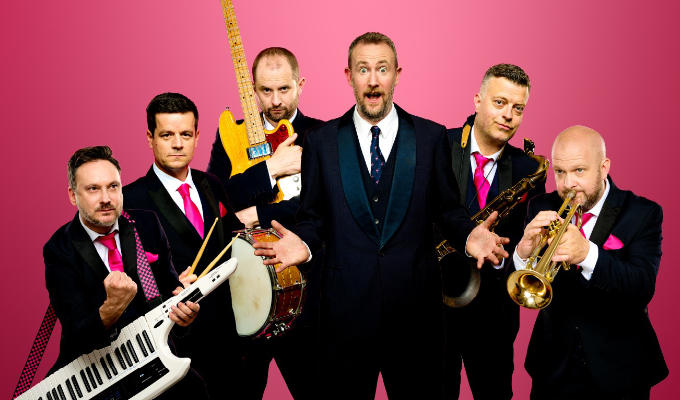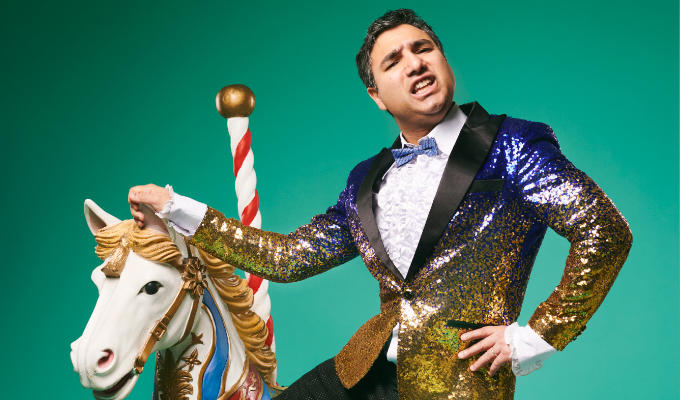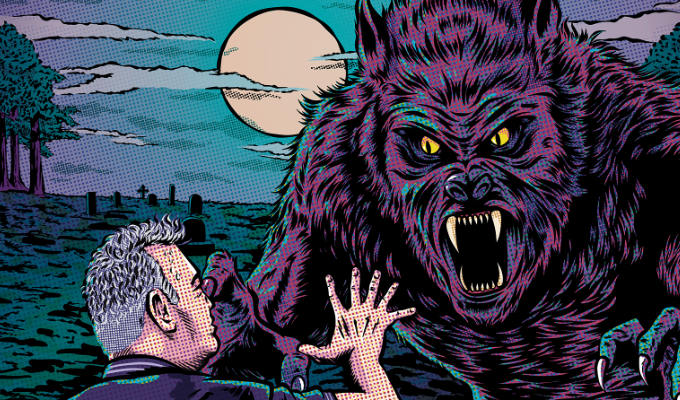
I remember Eugene Cheese
Dave Cohen pays tribute to one of the early circuit’s larger-than-life personalities.
You’ll have read here about Paul Jay aka Eugene Cheese, the comedy promoter who died last week aged 79.
He ran a succession of small comedy clubs from the late 1980s, and while he wasn’t there at the very start you can tell by some of the names on his bills including Lee Evans, Paul Merton, Jenny Éclair, Sean (then John) Hughes, and Trevor and Simon that he was way ahead of the pack.
Paul was putting on gigs before stand-up was a fashionable live option for young Londoners. Producers hadn’t worked out how to make stand-up look good on TV, and it wasn’t until the 1990s that the form reached a wider audience via the small screen.
At the time, there were three types of comedy promoter. The hobbyist, who took over an upstairs room in their local pub on Saturday night, watched their favourite performers and made some pocket money on the way. There were others who saw the commercial potential of stand-up and built solid businesses around this, notably Maria Kempinski and John Davey who ran Jongleurs, and Don Ward who revived the original Comedy Store in the mid-1980s.
And then there were the performers who set up gigs to ensure they always had a regular place to MC and get up on stage themselves. Paul was unapologetically a member of this group.
He saw his job as more than a performer and a promoter. The Chuckle Club was an early example of gig that was defined more or less exclusively in the image of the man himself.
The experience began as you arrived at the entrance, to be greeted by his wife Margaret taking money at the door. For the audience there was the eclectic coming-in music, and then the gig would begin.
Paul acted as bookends for every show. He loved nothing more than to come up on stage at the start, sing his Chuckle Club anthem, and end the evening with his barnstorming rendition of Minnie The Moocher. By heck that man had a mighty pair of lungs.
If he believed in your comedy he brought you back to perform at his clubs, time and time again. If he didn’t like what you did he’d tell you why and not get you back. He went through phases with performers, and there were periods when I was higher on his list than others.
The form became more popular, the acts and the venues slicker, but Paul’s clubs remained determinedly left-field. They weren’t always the most accessible venues – I remember one club near Victoria Station that was in the middle of a central London black hole, almost entirely devoid of passing trade. He often put gigs on in the middle of the week and sometimes the empty chairs outnumbered the audience.
For Eugene Cheese, as we all knew him at the time, making a living from promoting was less important that putting on live shows. In addition, he saw his role as nurturing his favourite acts. Eugene Cheese was the character who ran the club, took a fatherly interest in your career, and introduced and closed the event. I’m pretty sure I didn’t find out his real name until some time after I quit stand-up in the mid-1990s.
Years later we reconnected on Facebook. Bringing Paul back into my life albeit digitally put me back in touch with a whole bunch of friends and colleagues from our formative years at the live comedy coal face.
I’d spent ten years as a stand-up comic, and when I quit in 1994 established the narrative of my life which described that period as ending in failure. Which of course it had. So many of my contemporaries went on to enjoy exciting careers on TV, in movies and live on stage.
It took me many years to remember what had really mattered during those formative years of my 20s and early 30s: the camaraderie, the excitement of being involved in something new, never knowing what would be in store from tonight’s new gig or venue. And there’s no doubt that reconnecting with people like Paul was what brought those good memories back.
His passion for the form remained undiminished and in those early 2000s reminded me of what I had loved about the world I’d done so much to run away from.
It’s fitting that I remember the last time I saw him. It was nearly ten years ago, a few days after Felix Dexter had died and Paul arranged a meet-up in his honour at a pub in Bloomsbury.
That was also probably the last time I saw some of the old gang from those stand-up days. It was the kind of act of spontaneous generosity that marked Paul out as one of life’s givers, and it feels like the most appropriate way to remember him today.
Published: 22 Feb 2023






